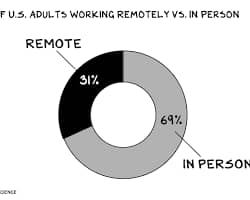Mergers and acquisitions can make or break careers. Find out how to leverage your MBA skills to not just survive but thrive during corporate transitions and deal-making. The first time I walked into a due diligence meeting, my stomach dropped. Boxes of financial statements towered in the corner, lawyers argued over indemnification clauses, and the CFO kept glaring at his watch. My MBA classes hadn’t prepared me for this chaos or so I thought. As the meeting unfolded, I realized my education had given me something far more valuable than textbook knowledge: a framework for making sense of the madness.
Seeing the Matrix Behind the Mayhem
M&A deals operate on two parallel levels, the emotional human drama and the cold financial logic. Your MBA equips you to navigate both. During that first acquisition, I watched seasoned executives make reckless decisions because they got emotionally invested in “winning” the deal. Meanwhile, my corporate finance training helped me spot red flags in the target company’s working capital ratios that others missed in their rush to close.
The most valuable skill wasn’t any particular technical competency, but the ability to toggle between zoomed-in analysis and big-picture strategy. When the integration team obsessed over IT system compatibility, I used my operations training to refocus the conversation on cultural alignment which ultimately determined the merger’s success.
The Hidden Curriculum of Deal-Making
Business schools teach valuation models and synergy calculations, but real-world M&A involves unspoken rules I had to learn through experience. There’s an art to reading the room during tense negotiations, where a well-timed question can reveal more than weeks of due diligence. I learned to identify the “ghosts at the table”, the unacknowledged agendas like ego preservation or career insecurity that often drive decisions more than spreadsheet analysis.
My strategy professor’s advice proved invaluable: “The numbers tell you whether you can do a deal. The people determine whether you should.” This lesson hit home when we walked away from a financially attractive acquisition after realizing the target company’s leadership team would poison our culture.
From Classroom to War Room
Certain MBA experiences translate directly to M&A challenges. Those grueling case competitions? They mirror the pressure of last-minute bid adjustments. Financial modeling courses become life rafts when you’re rebuilding target company projections at 2 AM. Even organizational behavior classes prove their worth when you’re designing integration plans that won’t trigger mass resignations.
I once used a change management framework from my MBA electives to prevent a disastrous talent exodus post-acquisition. While the finance team focused on systems integration, I implemented a “cultural bridge” program pairing leaders from both companies, an idea that came straight from a class discussion about the Daimler-Chrysler failure.
The Human Cost of Synergies

Behind every “cost synergy” slide are real people’s livelihoods. Early in my career, I proudly presented a $15M headcount reduction plan until the plant manager asked, “Did you ever consider what happens to their families?” That moment reshaped how I approach deals. Now I use my MBA toolkit to propose alternatives retraining programs, spin-off opportunities, or phased transitions that balance financial and human impact.
This nuanced approach became my differentiator. When private equity firms started requesting me for portfolio company integrations, it wasn’t because I was the smartest analyst, it was because I could articulate how workforce transitions affected customer retention and long-term valuation.
Your MBA provides more than M&A tools, it gives you the judgment to wield them wisely. The students who thrive in deals aren’t those who memorize the most formulas, but those who understand that every spreadsheet cell connects to human stories and strategic consequences. That’s the difference between doing deals and leading them.
References
IPS Education. (2025, February 21). Top high-paying career opportunities for MBA graduates in 2025. https://www.ipsedu.in/blog/top-high-paying-career-opportunities-for-mba-graduates-in-2025/
Dealroom.co. (2025, March 26). Mergers and acquisitions career path: Get a role in M&A. https://dealroom.net/blog/mergers-and-acquisitions-career-path
University of the People. (2025, February 11). Top 10 jobs for MBA graduates in 2025. https://www.uopeople.edu/blog/the-10-best-jobs-for-mba-graduates/
Indeed. (2025). Full mergers & acquisition MBA jobs. https://www.indeed.com/q-full-mergers-&-acquisition-mba-jobs.html

